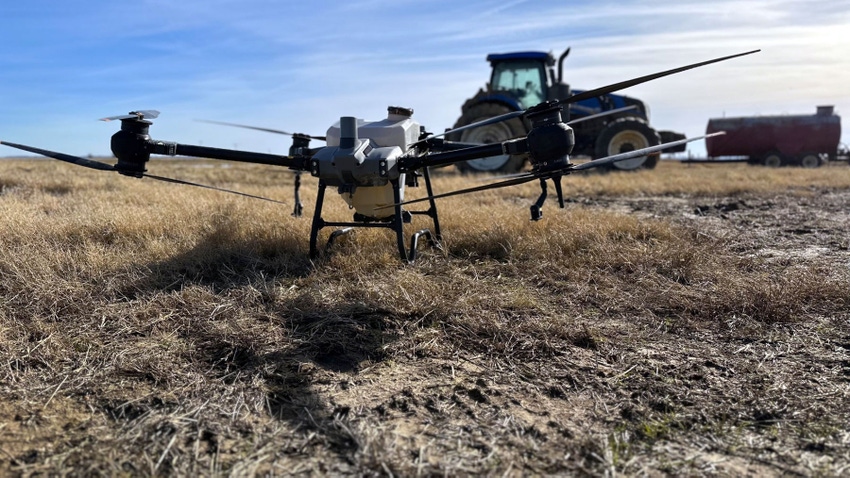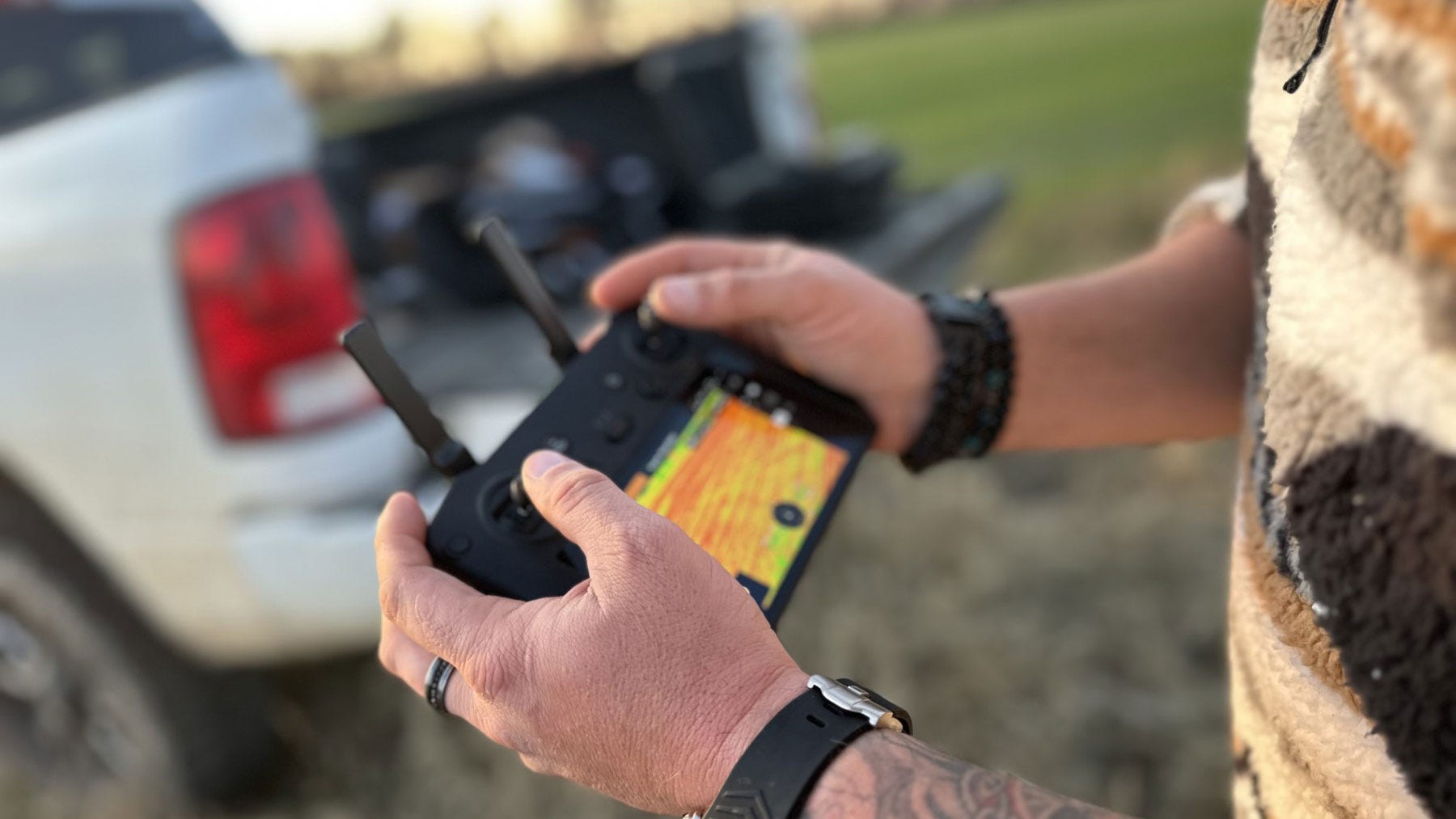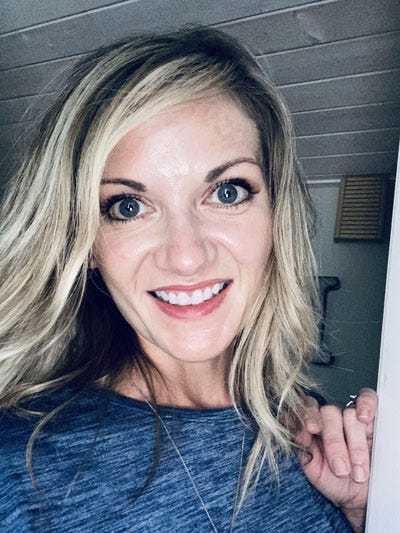
To offset the cost of production, farmers and ranchers often explore more efficient and economical ways of doing things. Today’s technology offers a range of solutions, and agricultural drones are one integration picking up steam.
Drones can enhance productivity, saving time and money, and more farmers are investing in these compact aircraft to make a sizeable impact on their operations.
While a full drone package is considerably cheaper than, say, a tractor or ground sprayer, it is a calculated investment that requires intentional selection, certification, and solid training before being employed on the farm.
For farmers considering such an investment, Jonathan Cottingham, founder of Southern Drone OPS in Jonesboro, Ark., offers four tips to get started.
1. Select a drone based on your intent.
There are a variety of drone models on the market, each designed with different features to enhance productivity. Selecting the best fit all depends on how you intend to use the technology.
Drones equipped with hi-resolution cameras can help farmers and ranchers monitor crops and livestock. Precision level mapping and remote sensing capabilities help identify soil moisture variations, measure soil surface temperature, and pinpoint crop nutrient levels.
Farmers can remotely detect plant stress, disease, nutrient deficiencies, and pest presence. Meanwhile, livestock producers can track herds and use thermal imaging to identify potential predators lurking nearby.
Spray drones take precision agriculture to the next level with targeted applications of fertilizers, chemicals, and seed. As a drone dealer specialized in DJI drones, Cottingham said, “One of the most compelling reasons to embrace agricultural spray drones is precision farming.
“Drones like DJI’s Agras T40, and others in the Agras line are equipped with GPS technology and sophisticated sensors. When you couple that with DJI’s Mavic Multispectral drone, you can precisely target areas in the field that need treatments,” he said.
These two drone models can communicate with one another and be used in tandem, providing greater cost efficiency and further reducing the likelihood of crop damage from spray drift.

Remote sensing capabilities of the DJI Mavic Multispectral drone help to monitor crop health and pinpoint areas in the field that need targeted treatment. (Photo by Whitney Haigwood)
2. Consider the return on investment.
There is potential to see significant long-term savings from utilizing drone technology, but the extent you use the technology largely determines your return on investment.
By analyzing multispectral data, farmers can stay ahead of the game and make more informed, profitable decisions. Precise insights allow spray drones to treat problem acres with targeted application, resulting in reduced inputs and chemicals compared to blanket applications.
Furthermore, the cost of a drone package is significantly cheaper than larger farm equipment – along with the cost per acre it takes to make the applications.
Cottingham said, “A total drone package with everything you need, including the scan drone, runs about $35,000. I have a lot of producers who are choosing to purchase drones instead of upgrading tractors and equipment. They can essentially get multiple drones for the same cost to upgrade a tractor.”
He added that by some estimates it costs only $5 to $6 per acre for a farmer to spray his own fields with a drone. Of course, that only accounts for the cost of running the equipment and does not include the chemical or fertilizer price. Regardless, it is a sharp difference compared to the $15 per acre it costs to apply with a tractor.
In addition, the efficiency of drones saves time and eliminates manual labor. By using drones and avoiding the use of heavy machinery, it not only lowers fuel expenses, but also addresses prevalent concerns in farming today like soil compaction and tramline loss or damage to crops.
3. Learn about drone regulations and get certified.
Before taking flight, drone operators must obtain a Part 107 Remote Pilot Certificate from the Federal Aviation Administration (FAA). Eligibility requirements are listed on the FAA website.
First-time pilots must be at least 16 years of age, fluent in written and oral English communication, with physical and mental capability to safely fly a drone. Candidates must also pass an initial exam, the Unmanned Aircraft General – Small (UAG), to demonstrate proficiency on topics like emergency procedures, flight restrictions, airspace and airport operations, radio communication, and drone maintenance.
Once certified, drone pilots must fulfill concurrent education every 24 calendar months to maintain their certificate. Depending on how and where you intend to use your drone may require special waivers approved by the FAA for operations outside of Part 107 standards. It is important to research these waivers and determine if any exemptions are necessary.
To use the aircraft to dispense chemicals or fertilizer, spray drone operators must complete the FAA 137 application, and third-party specialists like Cottingham can help with the process.
Finally, while the FAA does not currently require drones to be insured under Part 107 regulations, liability coverage is recommended. However, 137 applicator drones must be insured. Discuss options with your insurance provider to find the best plan for you.
4. Invest in a consultation service.
The rules and operating procedures of drone flight can be convoluted. To navigate regulations, many farmers and ranchers invest in expert training and consultations.
In addition to drone sales and support, Cottingham specializes in drone pilot consulting. For an annual fee, clients receive on-farm training and elite access to the curriculum developed by Cottingham.
With the help of his experienced staff, he offers software recommendations based on the needs of an operation, and he stays abreast of regulatory changes and industry trends to keep clients informed and compliant.
Cottingham said, “A lot of the consulting we do for farmers is to take care of the required paperwork. We also make sure they stay updated on new FAA standards and rules as they come out. There are so many little things to consider, that it helps to have a consultant lead you through the process.”
For questions on getting started or more information on products and offerings, you can visit the Southern Drone Ops website at SouthernDroneOps.com.
About the Author(s)
You May Also Like






